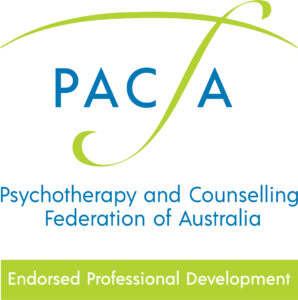Advanced Grief Theories
The purpose of this training program is to upskill professional therapists in contemporary grief and bereavement theories to meet the needs of individuals experiencing prolonged grief or at risk of developing prolonged grief disorder.

Advanced Grief Theories
- Lessons : 20
- Quizzes : 1
- Assessment : Treatment plan and reflection
- Duration : Approximately 6 hours
- Time to complete : 90 days
- Access : Desktop and mobile
Payments
While grief is a natural emotional response to loss, if integration doesn’t occur, grief cannot progress through the phases of mourning, leaving a person unable to accept the reality of loss. Evidence shows that if a bereaved person gets ‘STUCK’ in grief for 6 months or longer, they are at risk of developing a prolonged and persistent form of intense grief, which can significantly impair a person’s functioning with many linked risk factors and associated problems.
In February 2022, with the support of the NSW Ministry of Health, Griefline launched the Integrating Grief Program, a free counselling and support service to provide enhanced bereavement care for people experiencing prolonged grief.
The program is delivered by licensed counsellors who have participated in this training program, which was developed using the latest evidence-based techniques of key theorists pertaining to prolonged grief including Dr. Holly Prigerson, Robert A. Neimeyer PhD and Dr. Katherine Shear.
This course is recognised by Psychotherapy and Counselling Federation of Australia (PACFA) and counts for 6 hours of Category A CPD.

"I am happy to recommend the Griefline Advanced Grief Theories course. This accessible and well devised course effectively interlinks key Grief Counselling theories in a comprehensive and practical manner. This course has enhanced my confidence around some of the complementary assessment tools in Grief counselling. Particularly around how these tools can provide a more targeted approach to identifying Prolonged Grief Disorder, Meaning Making and/or Coping Skills."
Fiona E Griffiths, provisional PACFA member
What you'll learn
- The definition of Prolonged Grief and how it interferes with functioning and the risk factors that predispose some people to experience more severe and long-term grief responses
- Recognise the indicative signs that a person has become stuck in their grief.
- Assess the extent of a client’s distress and functional capacity by using validated assessment tools
- Differentiate between normal grief response, prolonged grief or persistent and traumatic grief.
- Describe the research focus and evidence-based techniques of key theorists pertaining to prolonged grief.
- Practice and apply a range of interventions that can be used in therapeutic settings to target specific client needs.
- Prepare a simple case/problem formulation and treatment plan for a client experiencing prolonged grief disorder (PGD).
- Apply techniques to address emotional dysregulation.